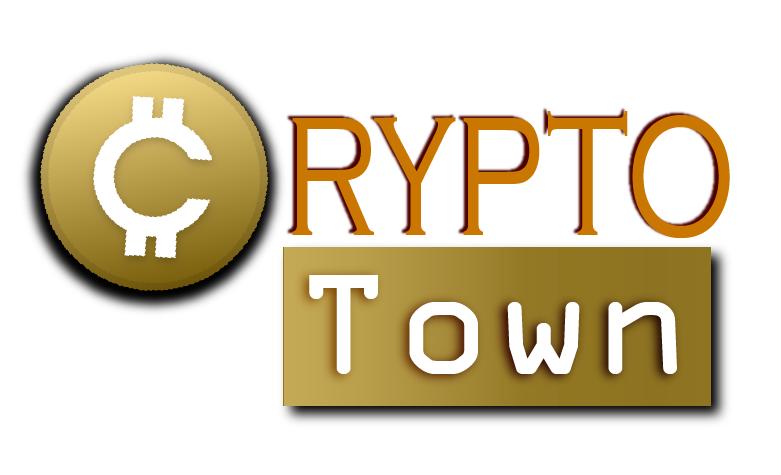Impact of Blockchain Technology On Financial Sector
The world is always changing, so it’s important to keep up. People and businesses that want to keep up with changes need to pay attention to evolutions. In the modern world, technology is making long-standing ways of doing things better.
Finance is just one field that is making big progress with the help of technology. To keep up with the times, it is done one step at a time. The use of a digital ledger, automated software, and the blockchain is a good example of an integrated fintech approach.
Let’s find out more about how blockchain can really change the future of money. But wait, you need to know what blockchain is first, don’t you? Yes, you do, so here you go…
What is Blockchain?
The world is always changing, so it is important to keep up. To keep up with changes, people and businesses need to pay attention to evolutions. In the modern world, technology is making ways of doing things that have been around for a long time better.
With the help of technology, finance is just one field that is making a lot of progress. It is done one step at a time to keep up with the times. A good example of an integrated fintech approach is the use of a digital ledger, automated software, and the blockchain.
Let’s learn more about how blockchain could really change the way money is used in the future. But first, don’t you need to know what blockchain is? Yes, you do, so here you go…
What are the Financial Benefits of Blockchain?
The Ethereum blockchain enables more open, inclusive, and secure business networks, shared operating models, more efficient processes, lower costs, and the introduction of Blockchain Technology In Finance. It enables the issuance of digital securities in shorter time frames, at lower unit costs, and with greater levels of customization.
Thus, digital financial instruments can be tailored to investor preferences, thereby expanding the market for investors, reducing costs for issuers, and minimizing counterparty risk.
Over the past five years, the technology has matured to the point where it is suitable for enterprise use, demonstrating the following advantages:
Its distributed consensus-based architecture gets rid of single points of failure and reduces the need for middlemen like transfer agents, messaging system operators, and inefficient monopolistic utilities.
Also, Ethereum makes it possible to create secure application code that can’t be changed by fraudsters or bad third parties. This makes it almost impossible to hack or change.
It uses mutually agreed-upon standards, protocols, and shared processes to act as a single source of truth for everyone in the network.
It’s easy for people in a business network to work together, manage data, and come to agreements because the ledger is open and can’t be changed.
Programmability: It makes it possible to make and run smart contracts, which are software programmes that can’t be changed and automate business logic. This increases trust and productivity.
It offers the best tools on the market for granular data privacy at every level of the software stack, making it possible for enterprise networks to share data selectively. This makes things much more open, trustworthy, and efficient while still keeping things private and secret.
Its private and hybrid networks are made to be able to handle hundreds of transactions per second and occasional traffic spikes.
Scalability: It enables interoperability between private and public chains, providing each enterprise solution with the global reach, tremendous resiliency, and high integrity of the mainnet.
Learn more: Making sense of bitcoin, blockchain, and cryptocurrency in detail
What is the Digitalization role of financial instrument digitization?
By creating previously unheard-of levels of connectivity and programmability between goods, services, assets, and holdings, the digitization of financial instruments—which includes digital assets, smart contracts, and programmable money—expands the advantages of blockchain technology. These digitally enhanced tools will transform how the commercial and financial markets operate, bringing value to every interaction.
The advantages of using digital financial instruments for business include:
Authenticity and scarcity: Digitization allows for the provenance of assets and the full history of transactions, all from a single shared source of truth.
Programmability: The assets themselves may contain code that manages governance, compliance, data privacy, identity (KYC/AML attributes), system incentives, and stakeholder participation (for voting and other rights).
Process simplification: Greater automation boosts overall operational effectiveness. As a result, processing times, the chance of error and delay, and the number of steps and intermediaries needed to achieve the same levels of confidence in traditional processes are all reduced. It also enables real-time settlement, audit, and reporting.
Economic benefits include decreased infrastructure costs, operating costs, and transaction costs as a result of automated, more efficient processes.
Market responsiveness: Digital securities can be issued more quickly and with more customization than standardized securities. The demand of investors can be directly matched by issuers to create customized digital financial instruments.
How does blockchain affect the markets for capital?
Capital markets connect companies that need money with investors who are willing to take on the same amount of risk and earn the same amount of money. No matter if the issuers are entrepreneurs, small businesses, or big companies, it can be hard to raise money. Firms have to deal with more and more strict rules, longer time to market, fluctuating interest rates, and liquidity risk.
They have to deal with the lack of strict monitoring, clear rules, and enough market infrastructure for issuing, settling, clearing, and trading, especially in emerging markets. Blockchain has many advantages for a number of capital market uses:
By spreading out utilities, there is no longer a single point of failure.
Getting things done on the capital market streamlining procedures, cutting costs, and cutting down on settlement times
Digitization of processes and workflows reduces operational risks of fraud, human error, and overall counterparty risk.
Assets and financial instruments can be turned into digital files or tokens, which makes them easier to manage and trade and makes it possible to write programmes for them. In token form, they can get into more markets because they can connect to more people and their ownership can be split up. This leads to more cash on hand and a lower cost of capital.
One Last Thing
We have seen that blockchain technology can make a big difference in the banking industry, with benefits like lower transaction costs, better data verification, faster transaction processing, etc.If you want your bank to use blockchain’s real power, talk to experts and get reliable blockchain development company that can help your business more than ever.
Check out: What is the Top Blockchain for Smart Contracts? – How To Use Them:

